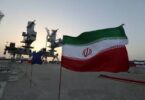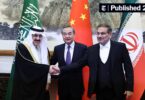The Foreign Ministry of Japan has said that it has ordered a senior Russian Diplomat to leave the country in retaliation for the expulsion of a Japanese diplomatic official over the alleged charges of espionage.
According to an official press release, the Japanese government declared one consul from the Russian consulate general in Sapporo, a persona non grata, and ordered him to leave the country in six days. According to reports, the Japanese authorities summoned the the Russian ambassador to the Foreign Ministry and informed about the decision.
Russian Federation and Japan, the sole East-Asian Technological and Industrial giant Japan had not been on friendly terms after the end of world war II. During the cold war, Japan sided with the United States while thousands of US troops had been stationed in Japan while Russian controlled Kurils Islands remained a major bone of contention between the Tokyo and Kremlin for their bottleneck bilateral relationship over the past decades. Historically, both nations couldn’t sign a peace Treaty in the past mainly due to this Islandic territorial dispute.
Interestingly, the Russo-Japan bilateral relations did not move toward normalization over the past decades due to a lack of flexibility on both sides. The former Japanese Prime Minister Shinzo Abe made several attempts to transform Russia-Japan rivalry into a bilateral trade and energy partnership through a joint economic activity on the Kurils Islands.
Abe intended to purchase cheaper Russian Liquified Natural Gas to boost Japan’s industrial growth in 2015. Meanwhile, Russia heavily militarized the Kurils Islands through the establishment of a Naval base and deployment of the Bal and Bastion missile Systems and Japan deployed the latest American-made Aegis Ashore Ballistic Missile System over mainland Japan which further widened the mutual distrust between both nations and put their economic collaboration on the back burner.
The current geopolitical landscapes of the Indo-Pacific region had created unfavorable conditions for Russo-Japan bilateral ties because both nations have diverging interests and associated with opposing blocs. Japan is an active member of the China-centric US-led Quad Security Dialogue, while Russia is a staunch supporter of Chinese war assets in the broader Indo-Pacific region.
Although, Russo-Japan diplomatic relations had been at odds due to conflicting views on regional and global issues but recently Russian authorities deported a Japanese Diplomat over the charges of espionage against the Kremlin. Hence, a tit-for-tat move came after Tokyo demanded an apology for Moscow’s illegal detention of a Japanese diplomat and also slapped similar cost to Russian Federation.
On the other hand, Russia considers Japan to be a hostile country, and the US-Japan alliance is also posing another challenge to Russian interests in the broader Indo-Pacific region.
Earlier, the Russia-Japan relations were improving but Kremlin pulled back on the fear that that it Moscow quits Kurils Islands, the Washington will immediately deploy its troops over the strategically important Islands in the Indo-Pacific waters. Presently, Moscow is using Kurils Islands as a Counterbalance to western pressure against Russia Ukraine conflict in Eastern Europe and the Black Sea. Apparently, the Russo-Japan tension seems to be an extension of the Ukrainian conflict in East Asia and the Indo-Pacific waters, and if one considers Taiwan’s dispute then the world is surely proceeding toward world war III in the coming days.






